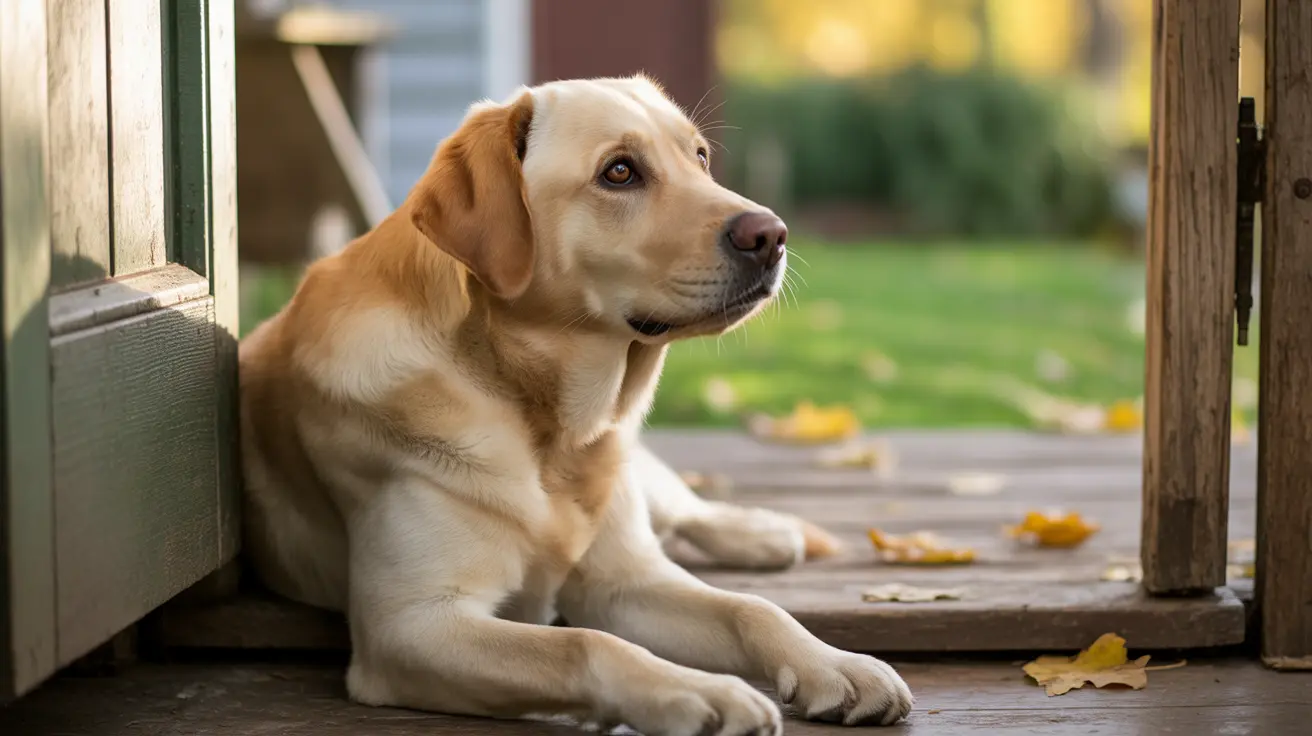Finding puddles around your home can be incredibly frustrating, especially when your dog keeps peeing in the house despite being fully house-trained. This unexpected behavior often leaves pet owners confused and concerned about their furry friend's well-being. Understanding the root cause of this issue is crucial for finding an effective solution.
Whether it's a medical condition, behavioral issue, or environmental factor, this guide will help you identify why your dog is having accidents indoors and provide practical steps to address the problem.
Medical Causes of Indoor Urination
Before assuming it's a behavioral issue, it's essential to rule out medical conditions that could be causing your dog to urinate inside. Several health issues can lead to increased urination or loss of bladder control:
Urinary Tract Problems
Urinary tract infections (UTIs), bladder stones, and crystals are common culprits behind indoor accidents. These conditions can cause frequent urination, discomfort, and an urgent need to relieve themselves, even shortly after going outside.
Age-Related Issues
Senior dogs may develop incontinence or cognitive dysfunction syndrome, leading to confusion about proper elimination habits. These conditions require specific medical management and understanding from pet owners.
Behavioral Reasons for Indoor Accidents
Marking Territory
Dogs, especially males, may mark their territory inside the house due to:
- New items or furniture
- Visiting guests or pets
- Changes in household dynamics
- Anxiety or stress
Incomplete House Training
Some dogs may have gaps in their house training or experience regression due to:
- Inconsistent training methods
- Changes in routine
- Limited access to appropriate elimination areas
- Confusion about acceptable bathroom spots
Environmental Factors and Stress
Environmental changes can significantly impact your dog's bathroom habits:
- Moving to a new home
- Schedule changes
- New family members
- Construction or renovation
- Weather changes affecting outdoor bathroom routines
Solutions and Prevention Strategies
Immediate Steps
Take these actions to address indoor urination:
- Clean affected areas thoroughly with enzymatic cleaners
- Maintain a consistent bathroom schedule
- Reward outdoor elimination
- Monitor water intake
- Consider using belly bands or diapers temporarily
Long-term Management
Implement these strategies for lasting results:
- Establish a routine feeding and bathroom schedule
- Provide more frequent outdoor breaks
- Use positive reinforcement consistently
- Address any underlying anxiety or stress
- Consider professional training assistance
Frequently Asked Questions
Why does my house-trained dog keep peeing indoors even after going outside?
This could be due to incomplete emptying of the bladder outside, marking behavior, or medical issues like UTIs. If your dog consistently pees inside shortly after outdoor breaks, consult your veterinarian to rule out health problems.
What medical issues cause dogs to urinate inside the house unexpectedly?
Common medical causes include urinary tract infections, bladder stones, diabetes, kidney disease, and age-related incontinence. Any sudden change in urination habits warrants a veterinary examination.
How do I stop my dog from marking territory inside the home?
Clean marked areas thoroughly with enzymatic cleaners, consider neutering if not already done, restrict access to previously marked areas, and work with a professional trainer to modify the behavior.
Can stress or anxiety lead to a dog peeing in the house, and how do I fix it?
Yes, stress and anxiety can cause indoor urination. Address the underlying cause of stress, maintain consistent routines, and consider working with a behavioral specialist for severe cases.
When should I take my dog to the vet for frequent indoor accidents?
Seek veterinary care if you notice sudden changes in urination habits, increased frequency, straining, blood in urine, or if the behavior persists despite behavioral modifications.






